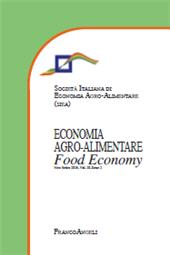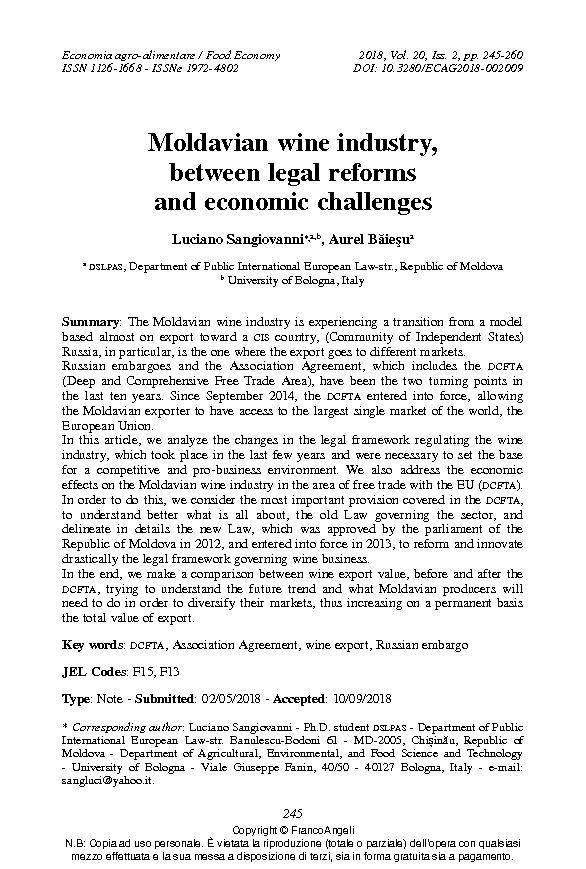Moldavian wine industry, between legal reforms and economic challenges
245-260 p.
The Moldavian wine industry is experiencing a transition from a model based almost on export toward a cis country, (Community of Independent States) Russia, in particular, is the one where the export goes to different markets. Russian embargoes and the Association Agreement, which includes the dcfta (Deep and Comprehensive Free Trade Area), have been the two turning points in the last ten years. Since September 2014, the dcfta entered into force, allowing the Moldavian exporter to have access to the largest single market of the world, the European Union. In this article, we analyze the changes in the legal framework regulating the wine industry, which took place in the last few years and were necessary to set the base for a competitive and pro-business environment. We also address the economic effects on the Moldavian wine industry in the area of free trade with the EU (dcfta).
In order to do this, we consider the most important provision covered in the dcfta, to understand better what is all about, the old Law governing the sector, and delineate in details the new Law, which was approved by the parliament of the Republic of Moldova in 2012, and entered into force in 2013, to reform and innovate drastically the legal framework governing wine business. In the end, we make a comparison between wine export value, before and after the dcfta, trying to understand the future trend and what Moldavian producers will need to do in order to diversify their markets, thus increasing on a permanent basis the total value of export. [Publishers' text].
Forma parte de
Economia agro-alimentare : XX, 2, 2018-
Artículos del mismo número (disponibles individualmente)
-
Información
Código DOI: 10.3280/ECAG2018-002009
ISSN: 1972-4802
KEYWORDS
- Dcfta, Association Agreement, wine export, Russian embargo



